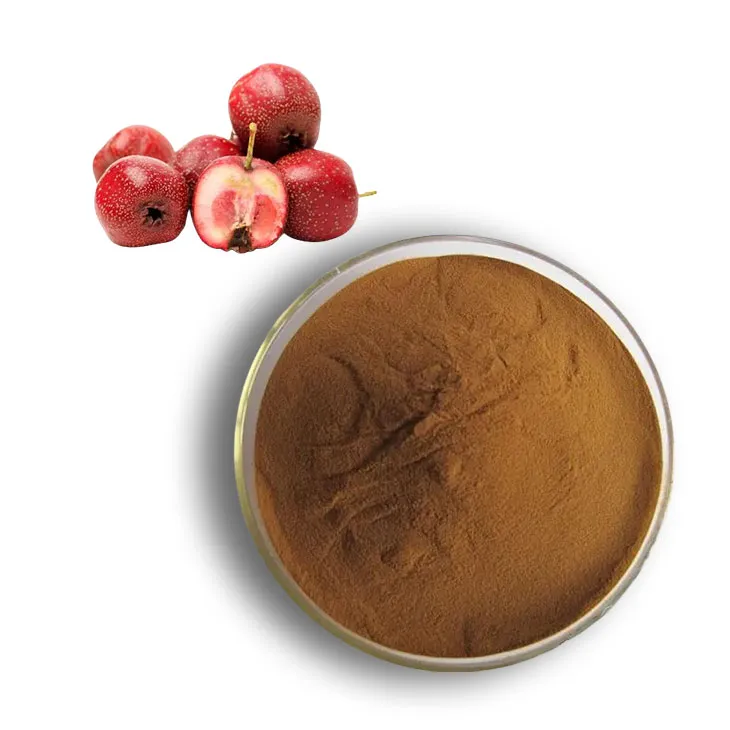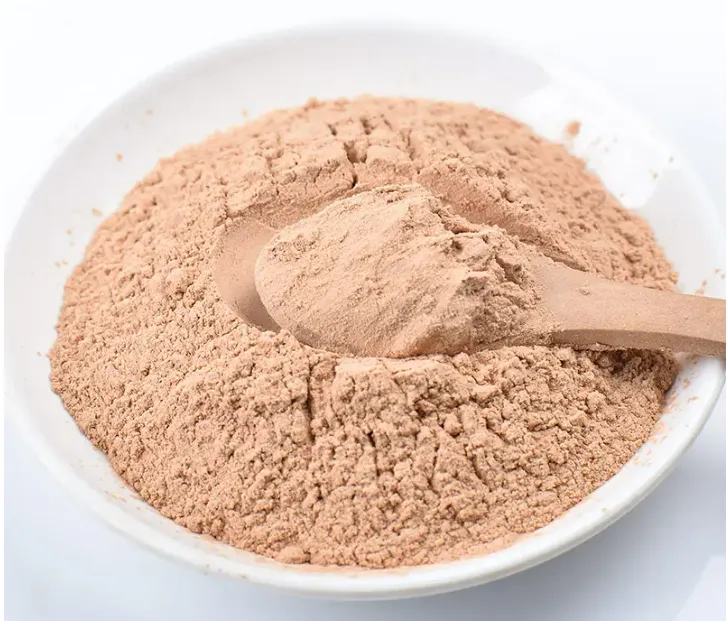- 0086-571-85302990
- sales@greenskybio.com
Is hawthorn extract beneficial for diabetes? Are these all safe and applicable for diabetic patients?
2024-11-13

1. Introduction
Diabetes has emerged as a major global health concern in recent decades. The prevalence of diabetes is on the rise, and it is associated with a variety of complications that can significantly impact the quality of life and life expectancy of patients. As a result, there is an increasing interest in exploring natural products that may have beneficial effects on diabetes management. Hawthorn, a well - known plant in traditional medicine, has been studied for its potential role in diabetes. Hawthorn Extract is thought to possess various bioactive compounds that could potentially influence blood glucose levels and other aspects related to diabetes.

2. The Composition of Hawthorn Extract
Hawthorn Extract contains a rich array of bioactive components. These include:
- Flavonoids: Such as Quercetin, which has antioxidant properties. Antioxidants are important in diabetes as they can help reduce oxidative stress, which is often elevated in diabetic patients.
- Proanthocyanidins: These compounds may have beneficial effects on blood vessels, which is relevant for diabetic patients as they are at high risk of developing vascular complications.
- Organic acids: For example, citric acid and malic acid, which may play a role in metabolism.

3. Potential Benefits of Hawthorn Extract for Diabetes
3.1 Blood Glucose Regulation
Some studies suggest that hawthorn extract may help regulate blood glucose levels. It may act on several mechanisms related to glucose metabolism. For example, it could potentially enhance insulin sensitivity. Insulin sensitivity is crucial in diabetes as impaired insulin sensitivity is a hallmark of type 2 diabetes. By improving insulin sensitivity, cells in the body can better respond to insulin, which in turn helps to regulate blood glucose levels more effectively. There is also evidence to suggest that hawthorn extract may influence the activity of certain enzymes involved in glucose metabolism, such as alpha - glucosidase. Inhibiting alpha - glucosidase can slow down the breakdown of carbohydrates and the subsequent absorption of glucose, leading to a more gradual increase in blood glucose levels after a meal.
3.2 Cardiovascular Protection
Diabetic patients are at a significantly increased risk of developing cardiovascular diseases. Hawthorn extract may offer some protection in this regard. The proanthocyanidins in hawthorn extract have been shown to have positive effects on blood vessels. They can help improve endothelial function, which is often impaired in diabetic patients. Endothelial cells line the inside of blood vessels and play a key role in maintaining vascular health. By improving endothelial function, hawthorn extract may help reduce the risk of atherosclerosis, a common complication in diabetes that can lead to heart attacks and strokes. Additionally, the antioxidant properties of hawthorn extract, mainly due to its flavonoid content, can help reduce oxidative stress in the cardiovascular system. Oxidative stress can damage blood vessels and contribute to the development of cardiovascular diseases.
3.3 Lipid Metabolism
Abnormal lipid metabolism is another common problem in diabetic patients. Hawthorn extract may have a role in improving lipid profiles. Some research indicates that it can help reduce levels of triglycerides and low - density lipoprotein (LDL) cholesterol, which are often elevated in diabetes. At the same time, it may have a positive effect on high - density lipoprotein (HDL) cholesterol levels, which is beneficial as higher HDL cholesterol levels are associated with a lower risk of cardiovascular diseases. The exact mechanisms by which hawthorn extract influences lipid metabolism are not fully understood, but it may be related to its effects on liver metabolism and the regulation of lipid - related enzymes.

4. Safety Considerations for Diabetic Patients
4.1 General Safety
In general, hawthorn extract is considered to be relatively safe when consumed in appropriate amounts. However, like any supplement, there are some potential side effects that need to be considered. Mild gastrointestinal symptoms such as nausea, stomach upset, and diarrhea have been reported in some cases. These side effects are usually mild and may subside on their own or with a reduction in the dose. It is important for diabetic patients to start with a low dose when using hawthorn extract and gradually increase it if necessary, while closely monitoring for any adverse reactions.
4.2 Interaction with Medications
One of the major concerns for diabetic patients is the potential interaction between hawthorn extract and their medications. Diabetics often take medications such as insulin or oral hypoglycemic agents to control their blood glucose levels. Hawthorn extract may interact with these medications, potentially affecting their efficacy or increasing the risk of hypoglycemia (low blood glucose). For example, if hawthorn extract enhances insulin sensitivity too much in combination with insulin therapy, it could lead to a rapid drop in blood glucose levels. Therefore, it is crucial for diabetic patients to consult their healthcare provider before starting to use hawthorn extract, especially if they are on multiple medications.
4.3 Quality and Purity of Hawthorn Extract
The quality and purity of hawthorn extract can vary widely depending on the source and manufacturing process. Low - quality extracts may contain contaminants or have inconsistent levels of active ingredients. Diabetic patients should ensure that they use high - quality hawthorn extract products from reliable sources. Look for products that have been tested for purity and potency, and follow the recommended dosage instructions carefully.
5. Research Gaps and Future Directions
While there is some evidence suggesting potential benefits of hawthorn extract for diabetes, there are still many research gaps that need to be addressed. For example, most of the current studies are pre - clinical or small - scale clinical trials. Larger, more comprehensive clinical trials are needed to confirm the efficacy of hawthorn extract in diabetes management. Additionally, the long - term safety of hawthorn extract use in diabetic patients has not been fully established. Future research should also focus on elucidating the exact mechanisms by which hawthorn extract exerts its effects on blood glucose regulation, cardiovascular protection, and lipid metabolism. Understanding these mechanisms in more detail will help in the development of more targeted and effective treatment strategies.
6. Conclusion
Hawthorn extract shows some potential benefits for diabetes, particularly in terms of blood glucose regulation, cardiovascular protection, and lipid metabolism. However, diabetic patients need to be cautious when using it. The safety aspects, including potential side effects, interactions with medications, and the quality of the extract, must be carefully considered. Healthcare providers should be consulted before starting to use hawthorn extract to ensure that it is used in a safe and effective manner. Continued research is also necessary to further clarify the role of hawthorn extract in diabetes management and to address the remaining research gaps.
FAQ:
Question 1: How does hawthorn extract potentially benefit diabetes?
Hawthorn extract may benefit diabetes in several ways. It has been shown to have antioxidant properties, which can help reduce oxidative stress in the body. Oxidative stress is often elevated in diabetic patients and can contribute to various complications. Additionally, some studies suggest that hawthorn extract may improve blood lipid profiles, which is important for diabetic patients as they often have abnormal lipid levels. It may also have a role in modulating blood glucose levels, although more research is needed to fully understand the mechanisms involved.
Question 2: Are there any clinical studies proving the benefits of hawthorn extract for diabetes?
There are some clinical studies exploring the effects of hawthorn extract on diabetes. However, the evidence is not yet conclusive. Some small - scale studies have shown promising results, such as improvements in blood glucose control and lipid parameters. But larger and more comprehensive studies are required to firmly establish its efficacy. These studies often face challenges such as differences in study design, sample sizes, and the composition of hawthorn extract used.
Question 3: What are the possible risks or side effects of hawthorn extract for diabetic patients?
Generally, hawthorn extract is considered safe for most people when used appropriately. However, some potential side effects may occur. It may interact with certain medications, especially those used to treat heart conditions or blood pressure. For diabetic patients who are often on multiple medications, this is an important consideration. In some cases, it may cause mild digestive problems like nausea or upset stomach. Additionally, allergic reactions to hawthorn extract are possible, although relatively rare.
Question 4: How should diabetic patients use hawthorn extract?
Before using hawthorn extract, diabetic patients should consult their healthcare providers. If it is deemed appropriate, the dosage and form of hawthorn extract need to be carefully determined. It should not be used as a substitute for standard diabetes medications without medical advice. In general, it is important to follow the recommended dosage instructions provided by reliable sources or as directed by a healthcare professional.
Question 5: Can hawthorn extract replace diabetes medications?
No, hawthorn extract cannot replace diabetes medications at present. While it may show some potential benefits for diabetes management, it has not been proven to be as effective as the established diabetes medications in controlling blood glucose levels. Diabetes medications are specifically designed and tested to manage the complex pathophysiology of diabetes, and discontinuing them in favor of hawthorn extract without medical supervision can be extremely dangerous.
Related literature
- The Effects of Hawthorn Extract on Diabetes Mellitus: A Systematic Review"
- "Hawthorn Extract: Potential Benefits and Risks in Diabetic Patients"
- "Clinical Studies on the Role of Hawthorn in Diabetes Management"
- ▶ Hesperidin
- ▶ citrus bioflavonoids
- ▶ plant extract
- ▶ lycopene
- ▶ Diosmin
- ▶ Grape seed extract
- ▶ Sea buckthorn Juice Powder
- ▶ Beetroot powder
- ▶ Hops Extract
- ▶ Artichoke Extract
- ▶ Reishi mushroom extract
- ▶ Astaxanthin
- ▶ Green Tea Extract
- ▶ Curcumin Extract
- ▶ Horse Chestnut Extract
- ▶ Other Problems
- ▶ Boswellia Serrata Extract
- ▶ Resveratrol Extract
- ▶ Marigold Extract
- ▶ Grape Leaf Extract
- ▶ blog3
- ▶ blog4
- ▶ blog5
-
Organic Tongkat Ali extract powder factory.
2024-11-13
-
How to make powder with ashwagandha extract.
2024-11-13
-
Rosehip extract manufacturers from China.
2024-11-13
-
The best cat's claw extract in nature.
2024-11-13
-
Chinese Dandelion Leaf Extract Suppliers.
2024-11-13
-
Thunder God Vine Extract
2024-11-13
-
Mango flavored powder
2024-11-13
-
Cat Claw Extract
2024-11-13
-
Coconut Water Powder
2024-11-13
-
Passionflower Extract
2024-11-13
-
Elderberry Extract
2024-11-13
-
Alfalfa Meal
2024-11-13
-
Quercetin
2024-11-13
-
Beetroot Powder
2024-11-13
-
Rose Hip Extract
2024-11-13





















